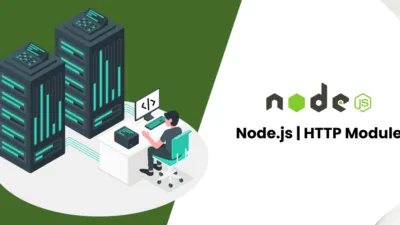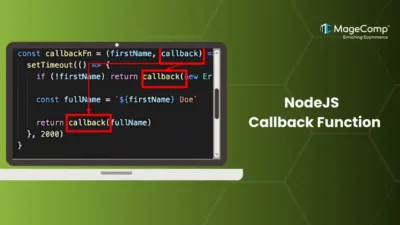Node.js, an open-source, cross-platform JavaScript runtime environment, has revolutionized server-side programming by providing a robust framework for building scalable network applications. One of the key features of Node.js is its modular architecture, which allows developers to organize their code into manageable, reusable pieces called modules.
Types of Modules in Node JS is a set of functions that can be included in your program. Node JS has its own set of modules that can be included without installation. Every module has its own context so it cannot be mixed with another module. Each module can be placed in a separate js file. Consider modules to be the same as JavaScript libraries, a set of functions you want to include in your application.
Types of NodeJS Modules:
Node js has the following 3 types of modules:
- Core modules
- Local Modules
- Third-Party Modules
Core modules
These are modules that come with Node.js and can be used without any additional installation. Examples include:
- fs: File system operations
- http: HTTP server and client
- path: File and directory path utilities
- os: Operating system-related utility methods
Example:
const fs = require('fs');
fs.readFile('example.txt', 'utf8', (err, data) => {
if (err) throw err;
console.log(data);
});Third-Party Modules:
These modules are created by the community and can be installed using npm (Node Package Manager). Examples include:
- express: Web application framework
- mongoose: MongoDB object modeling tool
- lodash: Utility library for working with arrays, numbers, objects, etc.
Example:
const express = require('express');
const app = express();
app.get('/', (req, res) => {
res.send('Hello World!');
});
app.listen(3000, () => {
console.log('Server is running on port 3000');
});Custom Modules:
These are modules you create yourself to encapsulate specific functionality. You can export functions, objects, or variables from these modules and import them into other files.
Example:
function add(a, b) {
return a + b;
}
function subtract(a, b) {
return a - b;
}
module.exports = { add, subtract };Key Points
- Node.js uses a module system to manage dependencies and code structure.
- Modules can be built-in, third-party, or custom.
- CommonJS is the default module system in Node.js, but ES modules are also supported.
Conclusion:
Understanding the different types of Node.js modules is essential for leveraging the full potential of Node.js in application development. Core modules provide essential functionalities, local modules help in organizing and reusing code, and third-party modules extend the capabilities of your applications. By effectively utilizing these modules, NodeJS developers can build robust, efficient, and scalable Node.js applications.





